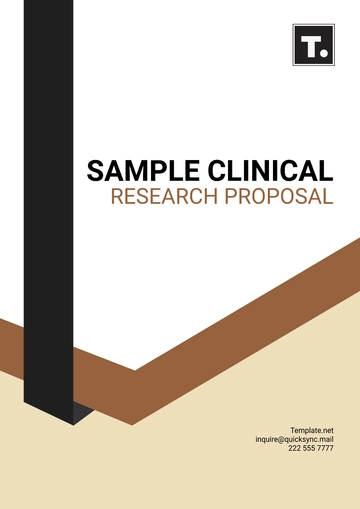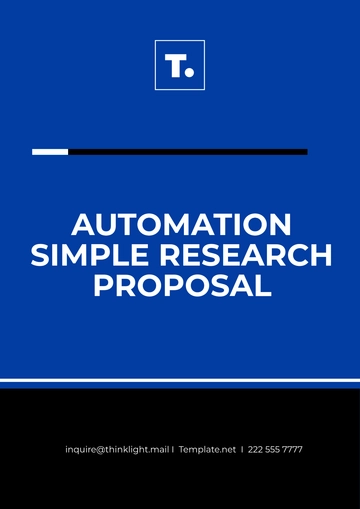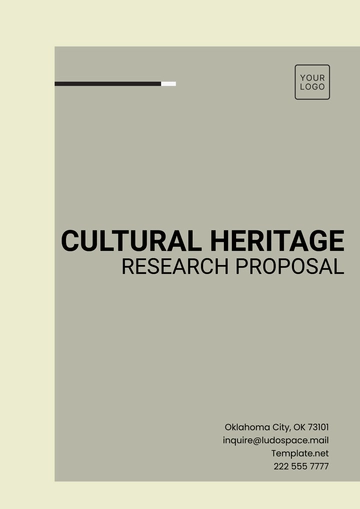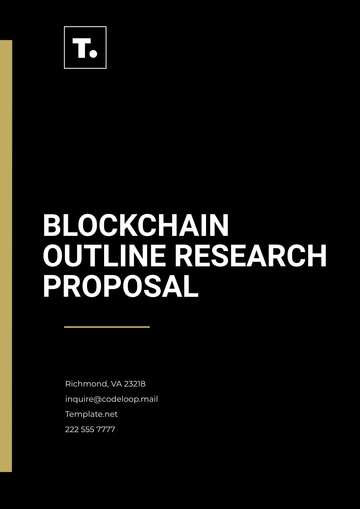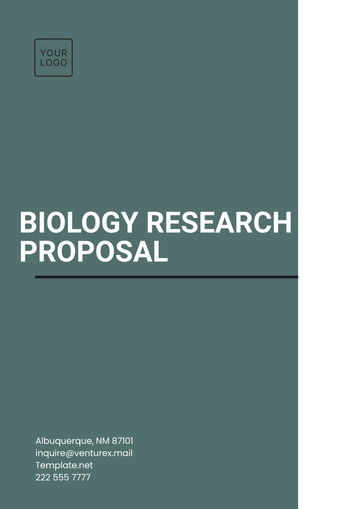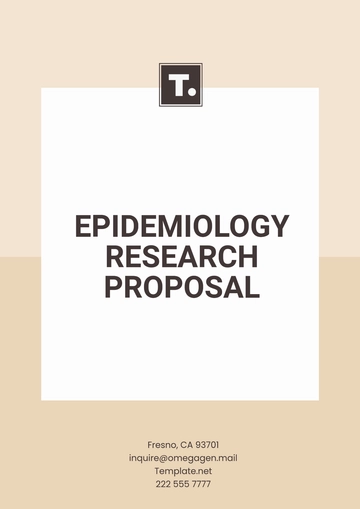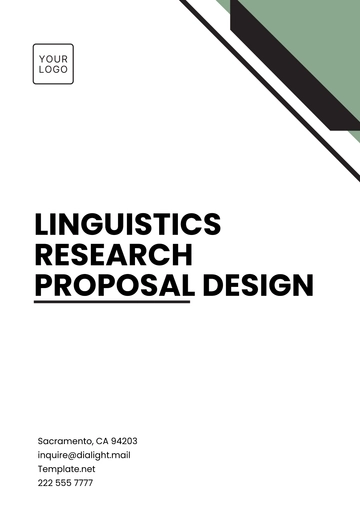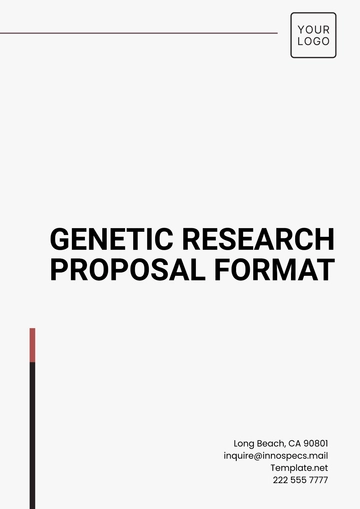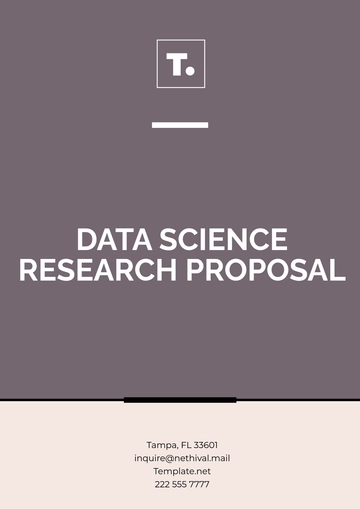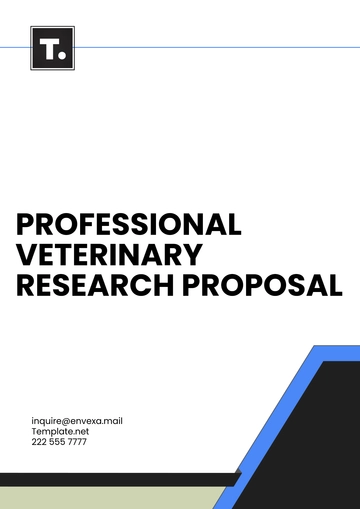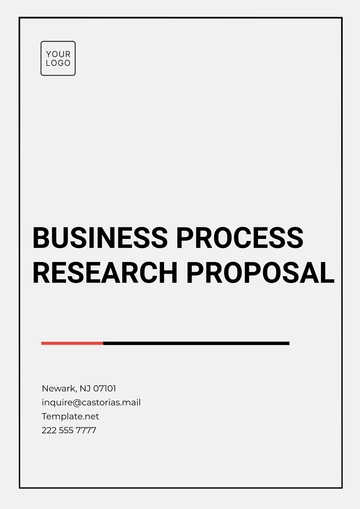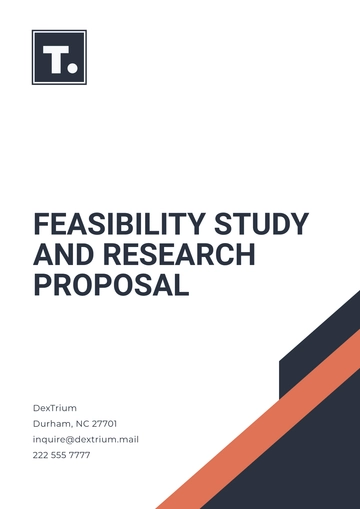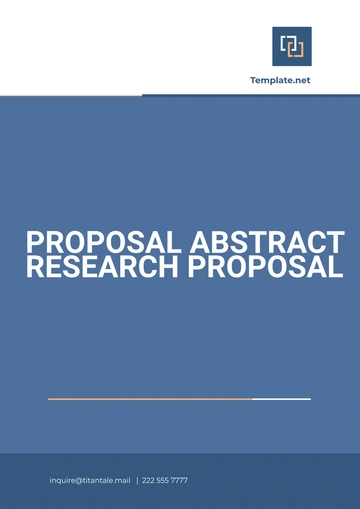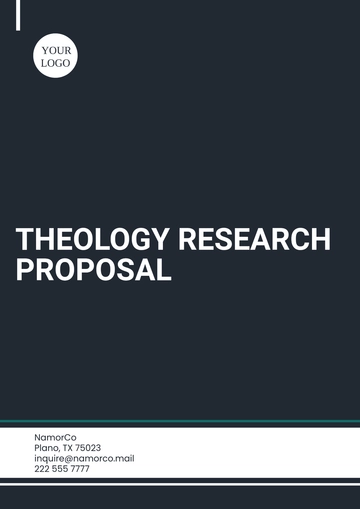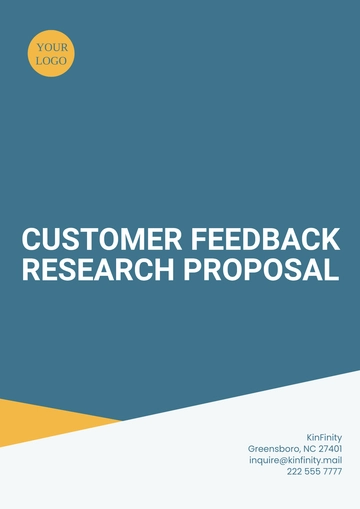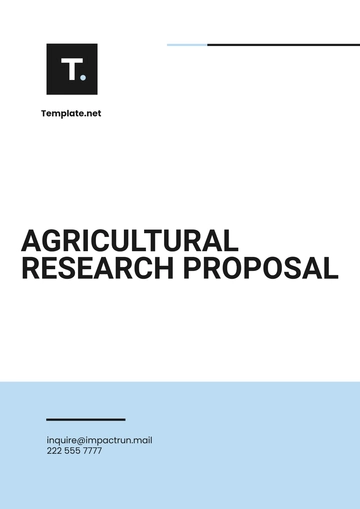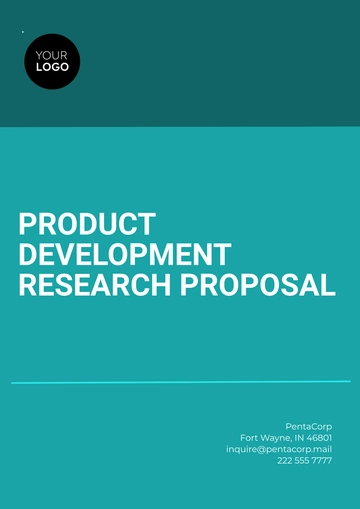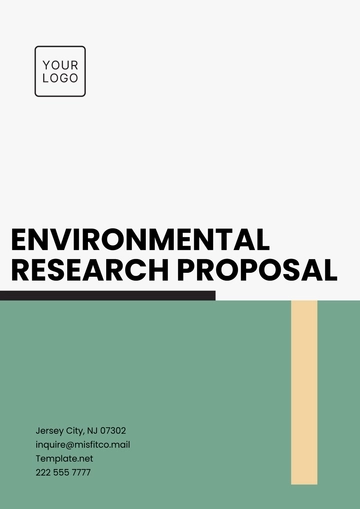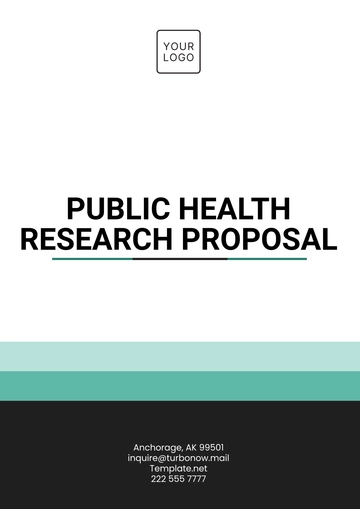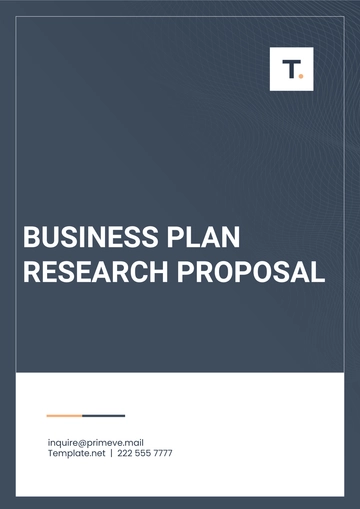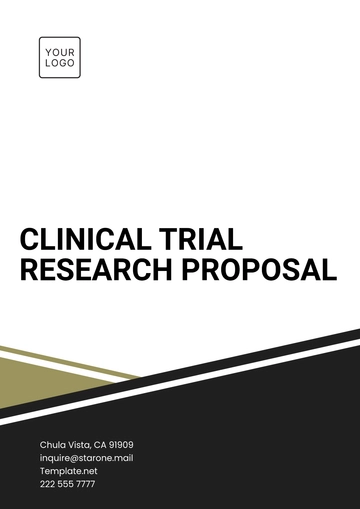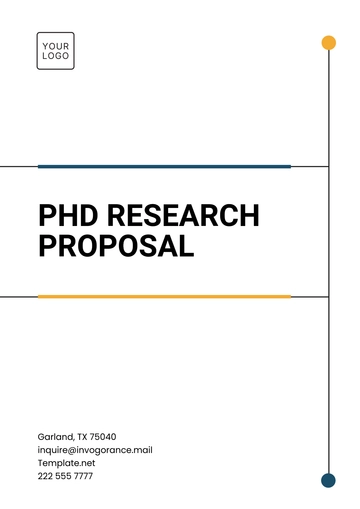Free Climate Change Research Proposal
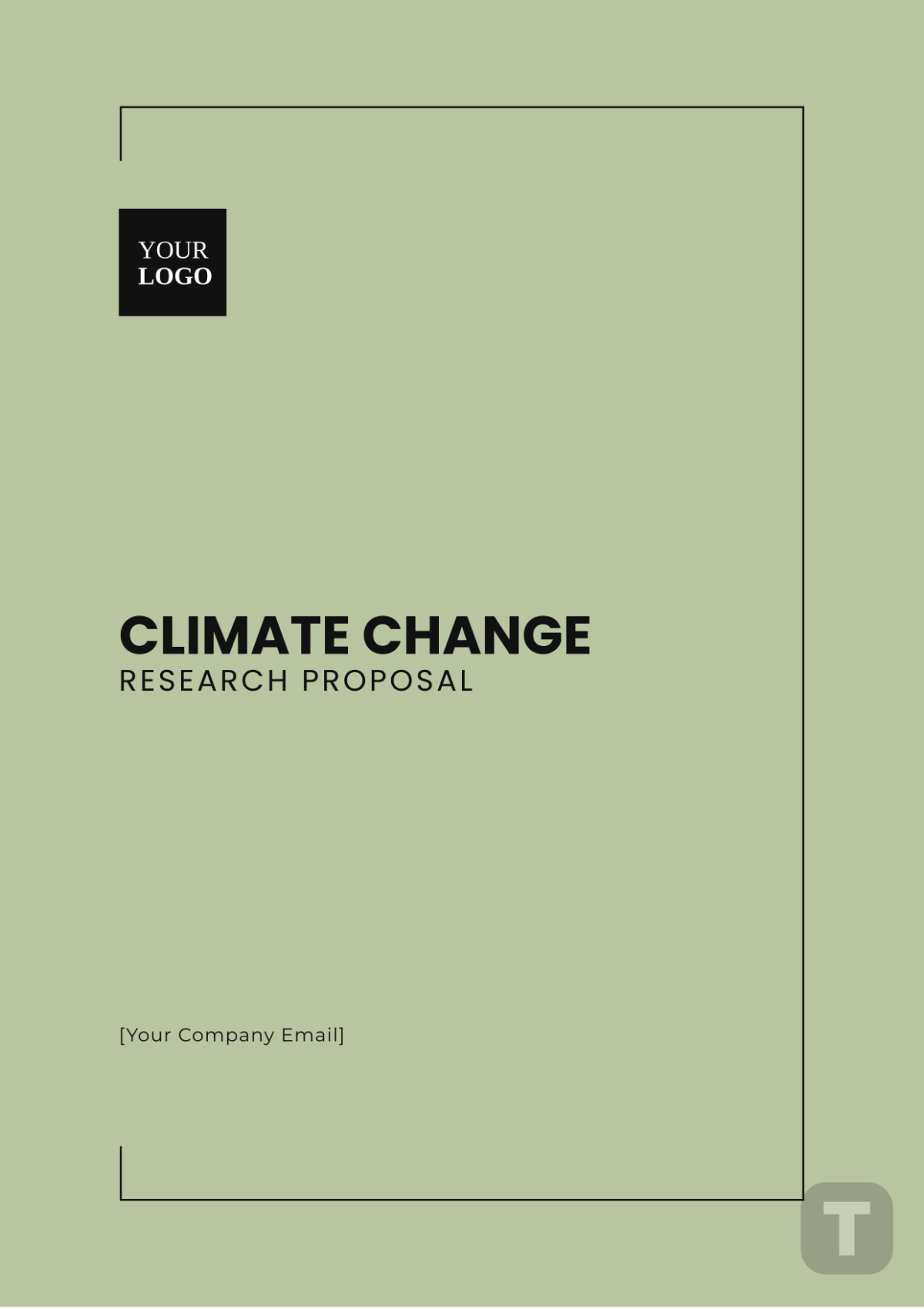
Researcher: [Your Name]
Date: [Date]
I. Introduction
Climate change presents a pressing challenge with far-reaching impacts on environmental stability, economic development, and human health. This research proposal aims to investigate the anticipated impacts of climate change on agricultural productivity from 2050 onwards. The study will focus on how future climate scenarios, including increased temperatures and altered precipitation patterns, are expected to affect crop yields. It will also assess the indirect effects, such as shifts in pest populations and soil health degradation, to develop strategies for mitigating these impacts and ensuring future food security.
II. Research Objectives
The primary objectives of this research are:
To assess the projected impact of climate change on crop yields from 2050 onwards.
To analyze how predicted changes in weather patterns will influence agricultural practices.
To evaluate the anticipated indirect effects of climate change, such as increased pest infestations and soil degradation, on crop productivity.
To propose adaptation strategies that can help farmers prepare for and mitigate the future effects of climate change.
III. Literature Review
Existing research indicates that climate change is likely to have significant impacts on agriculture in the future. Studies have projected that rising temperatures and changing precipitation patterns will alter crop yields, potentially reducing productivity for heat-sensitive crops such as wheat and maize. Future climate scenarios also suggest an increase in the frequency and intensity of extreme weather events, such as droughts and floods, which will further stress agricultural systems. Additionally, warmer temperatures are expected to enhance the proliferation of pests and diseases, compounding the challenges faced by farmers. This research will build upon these findings by providing detailed projections and region-specific analyses for the latter half of the 21st century.
IV. Methodology
IV.I Data Collection
Primary Data: Collect data on projected crop yields, weather patterns, and soil conditions for the years 2050 and beyond using climate models, simulations, and future projections.
Secondary Data: Review existing climate scenario datasets and agricultural forecasts from government agencies, research institutions, and international organizations.
IV.II Data Analysis
Quantitative Analysis: Utilize climate models to analyze the relationship between projected climate variables (temperature, precipitation) and anticipated crop yields.
Qualitative Analysis: Analyze projections and expert opinions on future agricultural practices and adaptation strategies.
IV.III Experimental Design
Simulation Experiments: Conduct simulations to test the effectiveness of various adaptation strategies under future climate scenarios, including crop rotation, irrigation management, and integrated pest management.
V. Expected Outcomes
This research is expected to:
Provide a comprehensive analysis of the projected impacts of climate change on agricultural productivity from 2050 onwards.
Identify the most vulnerable regions and crops based on future climate projections.
Propose effective adaptation strategies that can be implemented to prepare for and mitigate the future effects of climate change.
Contribute valuable data and insights to the existing body of knowledge on future climate impacts and agriculture, assisting policymakers, researchers, and practitioners in planning and decision-making.
VI. Budget
Expense Category | Estimated Cost (USD) |
|---|---|
Data Collection | $25,000 |
Simulation Experiments | $30,000 |
Data Analysis | $20,000 |
Personnel (Researchers, Assistants) | $50,000 |
Travel and Accommodation | $15,000 |
Miscellaneous | $10,000 |
Total | $150,000 |
VII. Timeline
Activity | Duration |
|---|---|
Literature Review | 3 months |
Data Collection | 5 months |
Simulation Experiments | 7 months |
Data Analysis | 4 months |
Report Writing and Dissemination | 3 months |
Total Duration | 22 months |
VIII. References
Smith, P., Bustamante, M., Ahammad, H., Clark, H., Dong, H., Elsiddig, E. A., ... & Tubiello, F. N. (2050). Agriculture, Forestry, and Other Land Use (AFOLU) in the Future. In: Climate Change 2050: Mitigation and Adaptation Strategies. Contribution of Working Group III to the Sixth Assessment Report of the Intergovernmental Panel on Climate Change.
Rosenzweig, C., Elliott, J., Deryng, D., Ruane, A. C., Müller, C., Arneth, A., ... & Piontek, F. (2050). Assessing Agricultural Risks of Climate Change in the 21st Century: A Global Gridded Crop Model Intercomparison for the Years Ahead. Proceedings of the National Academy of Sciences, 118(9), 3268-3273.
Lobell, D. B., Schlenker, W., & Costa-Roberts, J. (2050). Future Climate Trends and Their Impact on Global Crop Production. Science, 370(6042), 616-620.
- 100% Customizable, free editor
- Access 1 Million+ Templates, photo’s & graphics
- Download or share as a template
- Click and replace photos, graphics, text, backgrounds
- Resize, crop, AI write & more
- Access advanced editor
At Template.net, our Climate Change Research Proposal Template is fully editable and customizable to fit your research needs. Easily outline your objectives, methodology, and expected outcomes with this professionally designed template. Editable in our AI Editor Tool, it allows you to personalize every section with precision, ensuring your proposal meets academic or professional standards.
You may also like
- Business Proposal
- Research Proposal
- Proposal Request
- Project Proposal
- Grant Proposal
- Photography Proposal
- Job Proposal
- Budget Proposal
- Marketing Proposal
- Branding Proposal
- Advertising Proposal
- Sales Proposal
- Startup Proposal
- Event Proposal
- Creative Proposal
- Restaurant Proposal
- Blank Proposal
- One Page Proposal
- Proposal Report
- IT Proposal
- Non Profit Proposal
- Training Proposal
- Construction Proposal
- School Proposal
- Cleaning Proposal
- Contract Proposal
- HR Proposal
- Travel Agency Proposal
- Small Business Proposal
- Investment Proposal
- Bid Proposal
- Retail Business Proposal
- Sponsorship Proposal
- Academic Proposal
- Partnership Proposal
- Work Proposal
- Agency Proposal
- University Proposal
- Accounting Proposal
- Real Estate Proposal
- Hotel Proposal
- Product Proposal
- Advertising Agency Proposal
- Development Proposal
- Loan Proposal
- Website Proposal
- Nursing Home Proposal
- Financial Proposal
- Salon Proposal
- Freelancer Proposal
- Funding Proposal
- Work from Home Proposal
- Company Proposal
- Consulting Proposal
- Educational Proposal
- Construction Bid Proposal
- Interior Design Proposal
- New Product Proposal
- Sports Proposal
- Corporate Proposal
- Food Proposal
- Property Proposal
- Maintenance Proposal
- Purchase Proposal
- Rental Proposal
- Recruitment Proposal
- Social Media Proposal
- Travel Proposal
- Trip Proposal
- Software Proposal
- Conference Proposal
- Graphic Design Proposal
- Law Firm Proposal
- Medical Proposal
- Music Proposal
- Pricing Proposal
- SEO Proposal
- Strategy Proposal
- Technical Proposal
- Coaching Proposal
- Ecommerce Proposal
- Fundraising Proposal
- Landscaping Proposal
- Charity Proposal
- Contractor Proposal
- Exhibition Proposal
- Art Proposal
- Mobile Proposal
- Equipment Proposal
- Student Proposal
- Engineering Proposal
- Business Proposal
